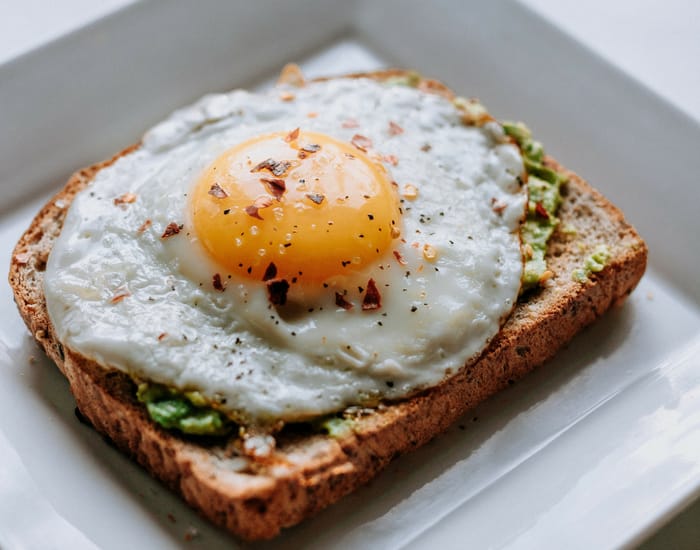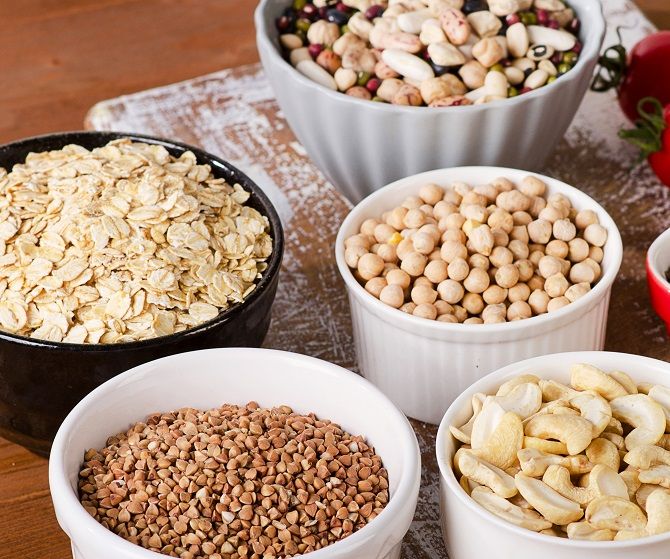By Dr Adam Simon
Raw Food Diet - Can it help you lose weight?
Can a raw food diet help you lose weight? Or could going raw put your health at risk?
We examine the facts.
Our cultural obsession with being thin has driven people to extreme lengths to try and get lean.
But perhaps one of the most extraordinary diets claims the path to getting slender, and being generally healthy, lies in eating your food uncooked.
In this guide, we'll take an in-depth look at the raw diet and get to the bottom of whether or not this unconventional regime could hold the key to shedding the pounds and maintaining good health.
What Is a Raw Food Diet?
As the name suggests, the raw food diet or Raw foodism centres around only eating stuff that's been subject to a minimum of preparation.
While the ins and outs can vary, a raw food diet usually involves steering clear of any processed foods and ones that have been treated with preservatives, additives or chemical fertilisers. A task that's certainly easier said than done.
It's also claimed that heating food above a certain level begins to break down the beneficial enzymes that help you digest it, as well as many of the nutrients within. Some proponents go further suggesting that cooked foods are rife with toxins that worsen or even cause a range of medical conditions.
While understandably popular with vegans and vegetarians, it's also possible to eat certain meats while abiding by a raw diet, although a lot of preparation can be involved (especially if you want to avoid food poisoning).
Read more about the vegan diet.
Does a Raw Food Diet Work ?
It might seem like a lot of effort, but is the transition to raw food worth the hassle?
In short, the science to date says 'no'.
The Claims
Advocates of the raw diet claim that heating food destroys its nutrients and natural enzymes, which aid digestion and help to fend off chronic disease, as well as unwanted weight.
Some go a step further, suggesting that cooking food actually makes it toxic (poisonous) and that the nutrients contained within raw food can help cure all sorts of issues, like allergies, headaches and even lead to improvements in arthritis, diabetes and even slow the signs of aging.
How it Works
The raw diet does what it says on the tin, which simply means you can't cook anything you eat. While there's a few variations, you're usually allowed to warm your food to between 40-50 degrees C.
Understandably, most people on this diet stick to fruits and vegetables, but the more adventurous go for raw meat, fish (particularly sushi), raw eggs and unpasteurised dairy products.
Those on the raw food diet usually seek out food that's not been treated with preservatives or additives, which can involve a great deal of effort, not to mention cost.
Raw Diets and Weight Loss
So, can raw diets help you lose weight and do they bring the raft of health benefits claimed by their followers?
To find out, let's dive into the evidence supporting or refuting these claims.
True: Cooking destroys *some* of the nutrients in your food
Cooking does cause some of the nutrients in food to degrade, but the process also makes others easier for us to absorb.
It also affects different types of nutrients differently. For instance, a study of 198 people on a long-term raw food diet found that they had elevated levels of beta-carotene, an important source of vitamin A.
However, participants also had a lower level of lycopene, an antioxidant associated with a range of health benefits, including preventing heart disease and several types of cancer.
In fact, a 2002 study found that cooking boosted the levels of lycopene in tomatoes. The author suggested that heat helped to break down the cell walls of plants, releasing the wealth of nutrients within.
Similarly, other research found raw food diets to be lacking in energy, protein, vitamins, calcium, selenium and zinc.
False: Cooking makes it harder to digest food by destroying vital enzymes
Advocates of the raw diet often suggest that the enzymes in our body need to be replenished by eating raw food that's rich in these and that aren't depleted by the cooking process.
However, this is a fundamental misunderstanding of the way enzymes work.
Enzymes are a substance known as a catalyst, which enhances the rate at which chemical reactions take place within our bodies.
Our bodies produce their own enzymes, they don't use the ones found in food. However, food does play an important role in the production of enzymes providing the proteins used to fuel their development.
Enzymes that we do ingest whether in vegetables or meat are broken down into protein by our stomach acids and cooking actually makes it easier to digest proteins actively aiding the production of enzymes.
False: A raw diet is healthier and can even cure long-term medical conditions
While many people do lose weight on the raw food diet, this is usually due to a reduction in the amount of calories that accompanies such a restrictive regime.
However, maintaining good health when going raw is far from a given, in fact many find it challenging to get the right balance of nutrition. Deficiencies in vital vitamins like D and B12 are common, while many raw dieters are forced to take supplements to contend with a lack of iron, zinc and selenium.
Getting enough energy can also be a struggle, with those going raw forced to rely on nuts (which can be high in fat) and fruits (which can be bad for the teeth when consumed in excess).
Since sourcing foods that can be eaten raw year-round can be a struggle, it's also common for those on this diet to fall into the habit of eating a fairly small range of foods, which can worsen nutritional problems.
Research indicates that the nutritional deficiencies resulting from a raw diet can actually cause long term harm. One study of raw vegan dieters found that BMI (body mass index) was below the norm in 15% of men and a quarter of female participants, while 30% of women in the study experienced either partial or complete amenorrhea (a condition that causes an abnormal absence of menstruation).
Other studies have found a raw diet to be associated with lower bone density, dental erosion and having a dangerously low body weight.
Since raw foods are much more susceptible to carrying food-borne pathogens, raw dieters are also at a heightened risk of developing food poisoning.
A Raw Deal
So while it seems going 100% raw can help you lose weight, it can't do so in a healthy way. It's also worth noting weight loss tends to occur in any calorie-restricted diet, but as we found in our exploration of smoothies these can be hard to stick to and tend to see very high levels of 'rebound' weight gain when dieters switch back to normal foods.
Fad diets may deliver rapid weight loss results in a relatively short time, but the health risks they pose, combined with high drop-out rates and the danger of putting the weight right back on after you come off them means they just aren't worth the trouble.
The bottom line is those looking to lose weight need to come to terms with the fact that the only sustainable way to shed the pounds and keep them off is with long-term changes to diet and lifestyle. Put simply, eat better and exercise more.
Your Thoughts?
What do you think's the score with raw? Whether you're still convinced that this all-natural diet holds the key to healthfulness or you think its claims are a bit fruity, we'd love to hear from you. Be sure to leave us a comment below or get in touch via Facebook or Twitter.

